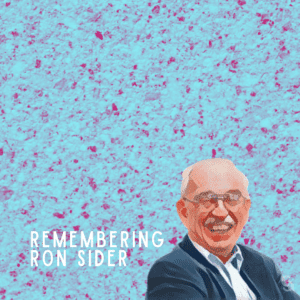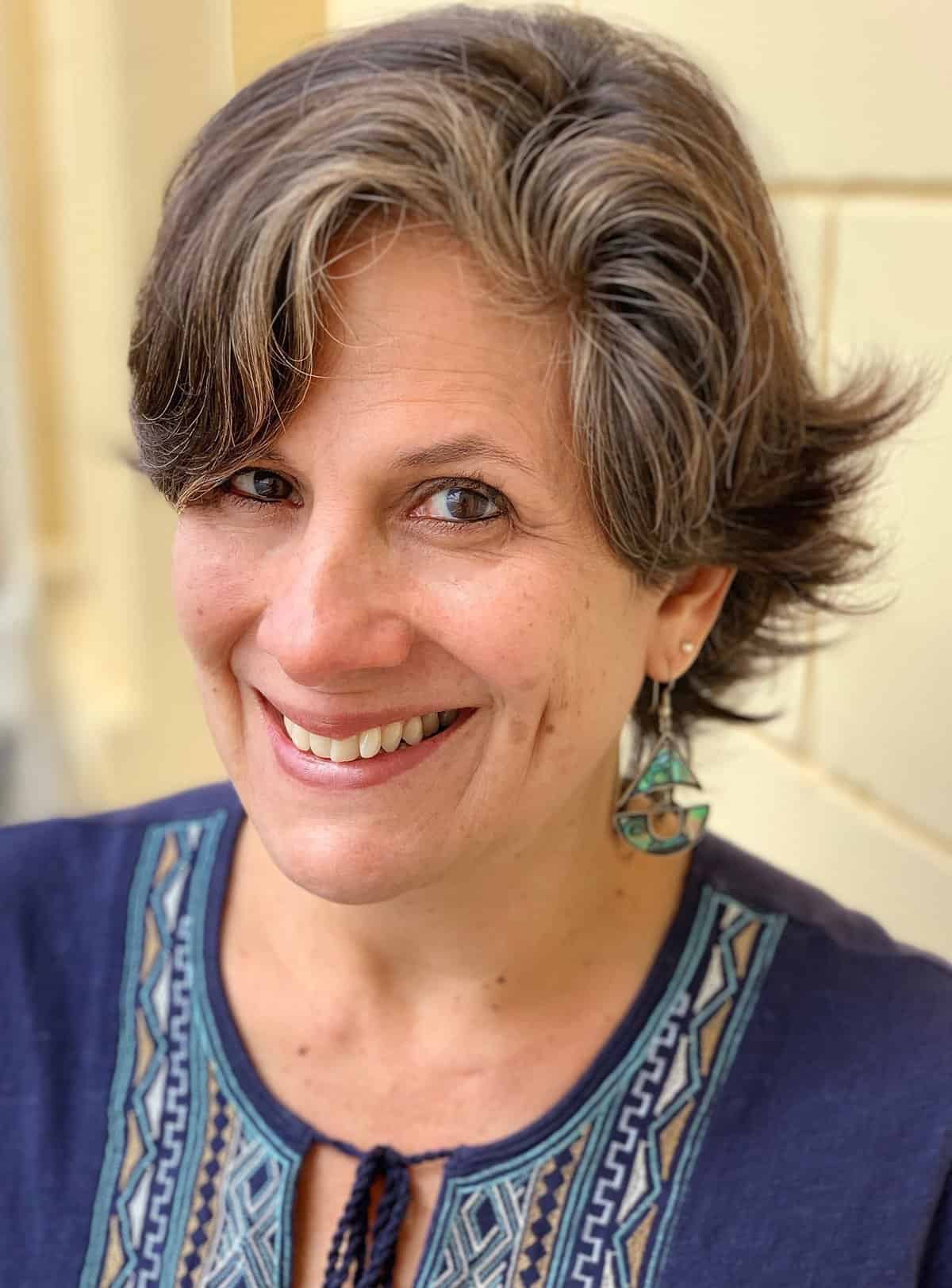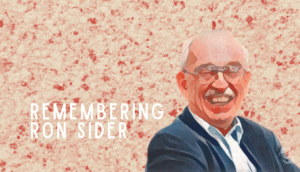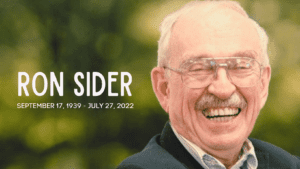 I first encountered Ron Sider in the context of the International Fellowship for Mission as Transformation (INFEMIT). What hit me about Ron was his incredibly gracious spirit. He was a good listener, an advocate for people whose voices were not heard. He was warm, friendly, and dedicated to working out how the gospel would connect to the issues of the day and the concerns of real people in real places. I believe one of the legacies of Ron is precisely that—his commitment to justice.
I first encountered Ron Sider in the context of the International Fellowship for Mission as Transformation (INFEMIT). What hit me about Ron was his incredibly gracious spirit. He was a good listener, an advocate for people whose voices were not heard. He was warm, friendly, and dedicated to working out how the gospel would connect to the issues of the day and the concerns of real people in real places. I believe one of the legacies of Ron is precisely that—his commitment to justice.
The defense of engaging with social concerns was not born out of a partisan loyalty or some ideological commitment. It was born out of his absolute commitment to a vision of the reign of God through Jesus Christ in the work of the Holy Spirit. He believed that included all people, regardless of their background, ethnicity, or culture. His engagement across these cultural and ethnic lines was extremely respectful and affirming. He valued the contribution of sisters and brothers from around the world and didn’t believe that Americans had all the answers and had to impose them on others. Instead, he really modeled what it meant to be part of the global church and to engage respectfully, recognizing that others possessed valuable gifts of the spirit, insights, and perspectives that contributed to the understanding of the gospel and what it meant to follow Jesus in the world. What I will miss about Ron is precisely that he was a person of integrity, simplicity, and commitment to the reign of God, but in a way that was gracious and dedicated to affirming the place of everybody at the table.
One of my memories of Ron is at the summit we held in early 2011 in Nairobi, Kenya, where we gathered with radical evangelicals from around the world and leaders in their particular context that had been part of the seeding of the life and ministry of INFEMIT and the Oxford Center for Mission Studies. Ron joined us along with David Guidari, Peter Kuzmic, Renee Padilla, Samuel Escobar, all friends from the global church. And here was this North American brother who was not from Asia, Africa, or Latin America, but engaged with them so humbly in a world where North Americans historically tend to perceive themselves as the elder brothers simply by virtue of coming from a powerful nation. He never displayed that sort of attitude. He was among peers. He was in this fellowship as another learner and fellow traveler along the way of faith.
In the same way he respected people from other areas, he also respected younger people. Even though he was quite a significant figure in evangelical Christianity and known globally for his contributions and publications, he valued the voice of younger people, like my generation. I found him to be very affirming of my leadership, as both person and as a woman. I thank God for Ron, his involvement INFEMIT, and his contributions as this fellow traveler, following Jesus in the world in a way that does not ignore the reality of the context, but actually seeks to engage with it responsibly and humbly.
 Born in Colombia and raised in Argentina, Ruth Padilla DeBorst lives in Costa Rica as part of the Casa Adobe community. She is Richard C. Oudersluys Associate Professor of World Christianity at Western Theological Seminary in Holland, MI; works at Ceti Continental, and serves as coordinator of the management team of INFEMIT (International Fellowship for Mission as Transformation).
Born in Colombia and raised in Argentina, Ruth Padilla DeBorst lives in Costa Rica as part of the Casa Adobe community. She is Richard C. Oudersluys Associate Professor of World Christianity at Western Theological Seminary in Holland, MI; works at Ceti Continental, and serves as coordinator of the management team of INFEMIT (International Fellowship for Mission as Transformation).


